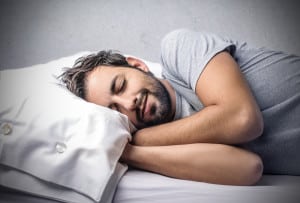 If your room is quiet and dark (and you don’t have any pets licking you awake in the middle of the night), you may wonder why you’ve been waking up feeling so tired lately. Unfortunately, both snoring and sleep apnea can negatively impact your nightly rest by rousing your from your slumber. The good news is that by learning more about these sleep disorders, you can quickly discover there’s an actual cause for your daily fatigue, schedule a visit for a diagnosis, and receive effective treatment.
If your room is quiet and dark (and you don’t have any pets licking you awake in the middle of the night), you may wonder why you’ve been waking up feeling so tired lately. Unfortunately, both snoring and sleep apnea can negatively impact your nightly rest by rousing your from your slumber. The good news is that by learning more about these sleep disorders, you can quickly discover there’s an actual cause for your daily fatigue, schedule a visit for a diagnosis, and receive effective treatment.
Is It Snoring?
Sleep apnea and snoring are not identical sleep problems. Let’s begin with snoring, which is often a symptom of sleep apnea. When you’re sleeping and your throat muscles partially relax, this allows the tissues within your throat to partially relax, too. They come into partial contact with one another, vibrating as you breathe in and out. The result? It’s the annoying sound we refer to as “snoring” that might wake you up during the night.
Is It Sleep Apnea?
Think of sleep apnea as the next step after snoring – instead of partial relaxation of your muscles, they relax completely. The result? Your throat tissues collapse, caving in on one another. For a moment, you will stop breathing. Fortunately, your brain will recognize that it is not receiving oxygen and will urge you to wake up, so you can breathe. Patients typically wake with a start, breathe, and fall asleep without remembering the event when they wake in the morning.
What To Do?
Though both sleep problems can affect your comfort and daily energy, sleep apnea can result in serious, long-term side effects. We suggest that you visit us if you think you’re dealing with either issue, so we may diagnose you and offer treatment. We typically suggest the use of an oral appliance. Much like a mouth guard, the device will shift your jaw to keep your air passages open during sleep.


